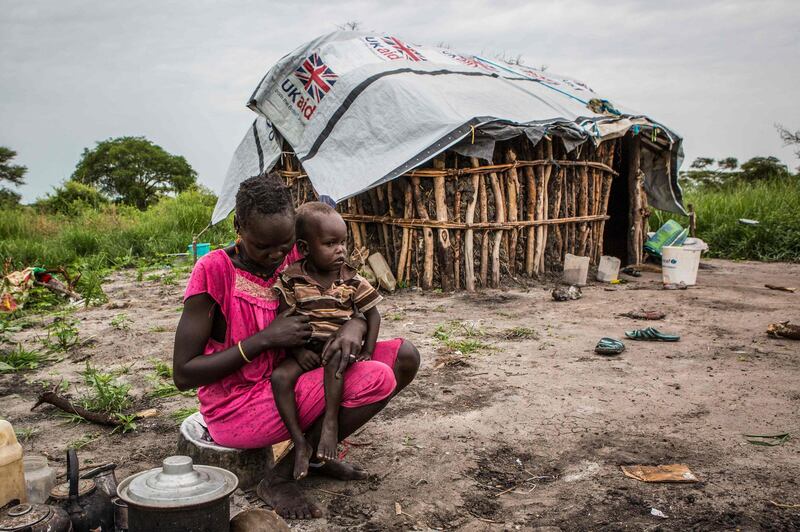With each passing week, South Sudan edges ever closer to long-term peace. Fears that the world’s youngest country might revert back to its violent past were sparked late last month, when a ceasefire was fleetingly violated. But three weeks after talks between South Sudan president Salva Kiir and his former deputy, turned rebel leader, Riek Machar, yielded an unexpected resolution, the fragile peace appears to be holding.
And tomorrow, the two men are expected to sign a preliminary power-sharing agreement – ahead of a final one on July 26 – which would formalise the road to durable peace and establish Mr Machar as the country's future vice president.
It is hard to overstate how refreshing the resolution is, in a deeply volatile stretch of east Africa.
That volatility has not dissipated entirely, not least because of the personal feud between Mr Kiir and Mr Machar upon which the country’s recent malaise is built.
A great deal of optimism surrounded South Sudan’s separation from Sudan in 2011, but it quickly vanished after Mr Kiir accused his deputy of plotting his overthrow. What followed was a bloody civil war that killed tens of thousands and displaced 4.4 million.
Previous such agreements, most notably in 2015, have collapsed – and as negotiations rumble on, the ranks of the sceptics continue to swell.
Nonetheless, this is a remarkable opportunity. The multilateral nature of negotiations, held over the border in Khartoum with the involvement of Uganda and Ethiopia, is a cause for optimism. So too is recent precedent in Gambia and elsewhere, which suggests that internal African solutions stand the best chance of success. Meanwhile, the ratification of numerous agreements highlights an understanding that peace must be constantly reaffirmed.
After years of bloodshed, the South Sudanese deserve peace. Most have lost loved ones to violence or displacement.
The country's feeble economy was all but destroyed by a war that drove the inflation rate to an alarming 55 per cent. Meanwhile beyond its borders, harmony in South Sudan would reinforce an encouraging trend towards peace in east Africa. Neighbouring Ethiopia and Eritrea, at war for two decades, have just ceased hostilities in a landmark agreement.
Each civil war has its own idiosyncrasies on a continent whose arbitrary boundaries were drawn by foreign powers. The basis of South Sudan’s – a personal feud – is simultaneously its most concerning and encouraging quality.
The world should now unite in encouraging both men to end their animosity and put the people first. If they are able to do so, the delicate peace could hold.





